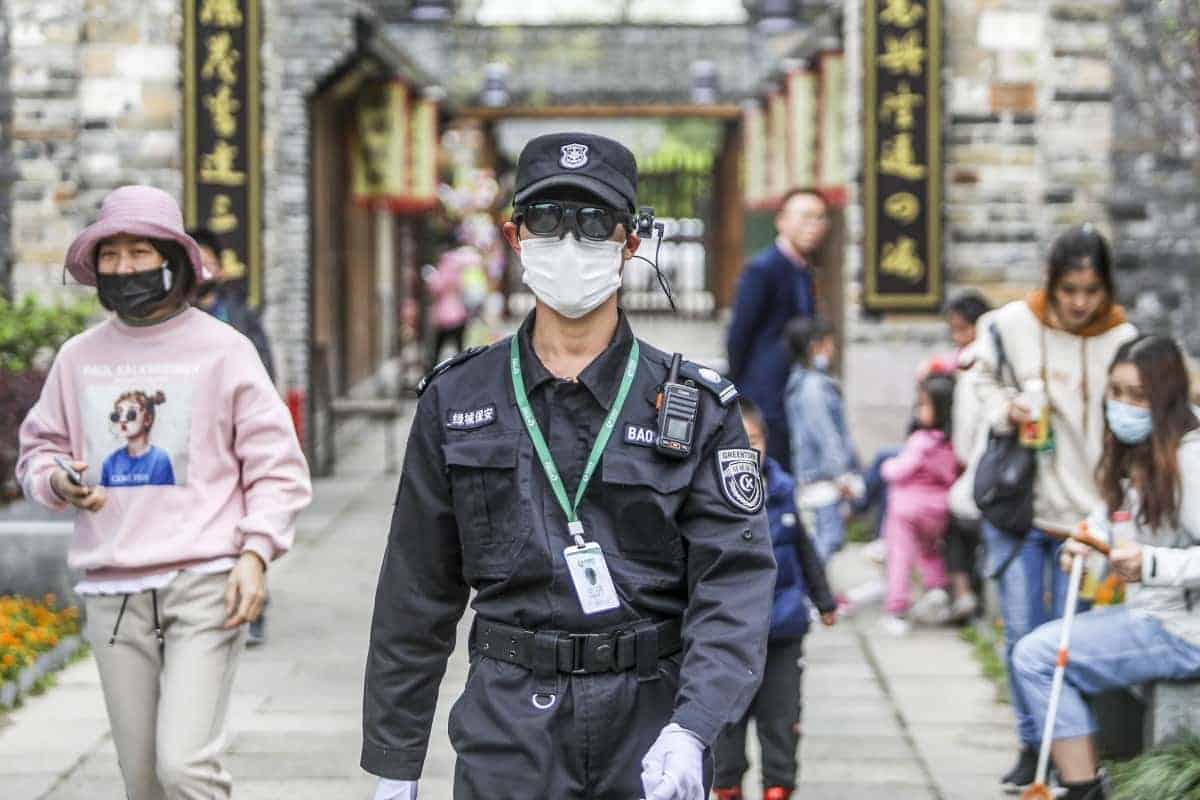Though China seems slowing down with Coronavirus infections, the country isn’t stopping any technologies that are helping it to detect the spreading. An AI form called Rokid is supplying AI glasses to police personnel in China, which scans for higher temperatures. This detection is so sophisticated that, it can verify and confirm higher temperatures of hundreds of people under just two minutes! This speed would help avoid those infected from the crowd.

People from almost 200 countries have been infected with COVID-19. Though this pandemic is spreading like a wildfire now, it somehow seems to settle in the origin nation, China. Countries like Spain, the US, Italy, and others are having a tough time with this, yet, China’s maintaining a slow rate. And it’s taking further steps to avoid too.
Hundreds of people under 2 minutes!
One such step is the usage of AI glasses by policemen in Hongyuan park, which is a part of the Xixi wetland preserve in Eastern China. This park is one of the prominent places after the Chinese government allowing public out after COVID-19 controlling. So this has to be monitored closely for avoiding any new infections. Rokid technologies, an AI firm from China is helping out police with their AI glasses to detect the temperature of the mass.
These glasses look simple as daily wearables but attached to wires at one end and a thermal camera at the other. This setup wouldn’t be so exciting to wear but given to highway police authorities in Hangzhou and to traffic police of cites near to Huzhou and Quzhou. These are just a part of several thermal devices China installed on various public places to monitor temperatures. And yeah, they’re connected to facial recognition tech too.
This grand instrument would check temperatures of people and alert authorities whenever a high temperature is detected. It has the capability of scanning hundreds under 2 minutes. Yet, it’s criticized for being an entry-level detector, which may not be true always, as people can have other strong symptoms it may miss.
Source: South China Morning Post


